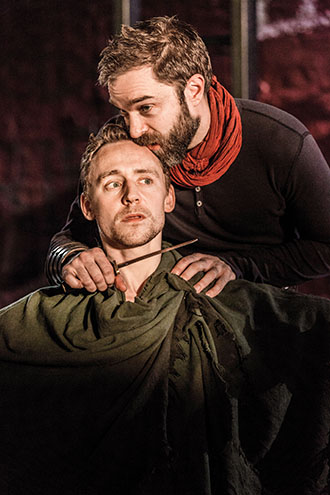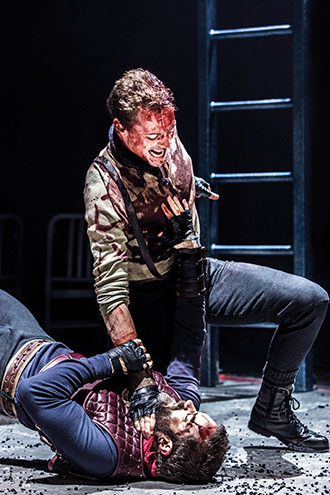“Coriolanus,” a violent clash of ideologies

Many have a familiarity with Shakespeare’s works due either to a love of classical literature, due to having seen film adaptations or due to being forced to study plays such as “Julius Caesar,” “Hamlet” or “Romeo & Juliet” in high school.
The immortal bard’s words have also become well known in popular culture with quotes such as “Et To, Brute!” and “Cry ‘Havoc,’” and “let slip the dogs of war,” or “To be or not to be: That is the question” or “O Romeo, Romeo, wherefore art thou Romeo?”

Just because many of Shakespeare’s words are still part of our everyday language doesn’t mean, however, that most people are familiar with every Shakespearian play. Shakespeare’s “Coriolanus” is relatively unknown.
“Coriolanus” is a Shakespearean tragedy in the same vein as Julius Caesar and King Lear.
Coriolanus is a Roman war hero who learns the hard way that sharing the spoils of war is not enough to keep citizens’ favor. As Coriolanus tries to parlay his military popularity into a Senate position, the very same citizens who cheered his personal victories in battle turn against him when reminded of his elitist views.

The story, with its theme of class equality and conflict, is reminiscent of current 24-hour news stations’ discussions about America’s rich and about governmental entitlement programs, a Democrat-Republican kind of battle. Revenge, manipulation, treachery and all the other trappings of politics exist within this class tale.
“Coriolanus” is also filled with the classic Shakespearian concepts of arrogance, revenge, treachery and doom.
It is some of these innate human struggles that Shakespeare so eloquently presented that allow his plays to still have relevance 400 years after their conception.
